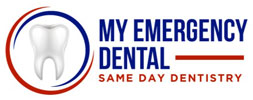Why are most people scared of seeing a dentist? How can they overcome this fear?
Fear of Suffering, Lack of Control; Communication, Distraction Strategies
Fear of suffering.
The anticipation of discomfort during dental procedures is one of the most common reasons why people fear visiting the dentist. This dread could be the result of negative past experiences or tales heard from others. I suggest discussing your concerns with your dentist as a solution. We can clarify the treatment process, provide pain management options including local anesthesia and sedation, and ensure your comfort throughout the procedure.
Lack of control.
Feeling impotent or powerless in the dental chair can exacerbate anxiety. The key to overcoming this anxiety is effective communication. Discuss your fears with your dentist and agree on a signal, such as raising your hand, to signify when you need a break or feel uneasy. Consequently, you will maintain a sense of control throughout the treatment.
Dental instruments and sounds.
Many individuals find the sight and sound of dental instruments intimidating and fear-inducing. I recommend requesting your dentist to explain the function of each instrument prior to beginning treatment. Understanding how to use the apparatus and gaining familiarity with it can help reduce anxiety.
Negative past experiences.
Having a traumatic dental experience can create a lasting dread of dentists. It is essential to locate a dentist who is empathetic and understands your concerns. Sharing your past experiences and anxieties with your dentist allows him or her to customize the treatment plan to reduce anxiety triggers and create a positive dental experience.
Education and communication.
Discussing your concerns openly with your dentist can reduce anxiety. We can provide information about the procedures, dispel any misunderstandings, and respond to your inquiries. Fear and anxiety can be reduced by comprehending the treatment plan and being well-informed about each step.
Distraction strategies.
Bringing headphones to your treatment and listening to music or an audiobook can help divert your attention and create a more relaxed environment. Some dental offices provide virtual reality headsets or televisions to help patients unwind and forget about the procedure.
Seeking out competent assistance.
Seeking professional assistance from a psychologist or therapist specializing in anxiety disorders can be beneficial for severe dental anxiety. These professionals can teach you cognitive-behavioral therapy (CBT) and relaxation techniques to help you manage and surmount dental anxiety.
Remember that each person’s phobia is unique, and that overcoming dental anxiety is a gradual process. It requires collaboration between you and your dentist to develop a personalized treatment plan that addresses your unique concerns and helps you feel more at ease. By selecting a compassionate and empathetic dentist and implementing coping strategies, you can overcome your anxiety and maintain good oral health.
Misconception that Dental Procedures Are Painful; Proactive Breathing and Relaxation Techniques
First is the misconception that dental procedures are painful.
The second reason is they have had a negative experience at the dentist and it can contribute to dental anxiety.
Lastly, the fear of injections and needles is a common source of anxiety for many individuals.
To overcome their fear of visiting the dentist, the patient could:
Communicate and openly express their feelings to the dentist to make sure their visit is as relaxed as possible.
Use proactive breathing and relaxation techniques to calm their nerves and take their mind off any procedures.
Bring along asmartphone and headphones to listen to music during the procedure. These can act as a helpful diversion and successfully block any unsettling noises that might induce anxiety.
Visit a sedation clinic if their phobia is severe.
Past Trauma; Gradual Exposure to Dental Procedures
Many people have negative associations with going to the dentist and these are mainly rooted in the fear of pain, discomfort, or the feeling of being out of control during their procedures. The procedures and procedure rooms themselves can also be very jarring and overwhelming to the senses, thanks to harsh lighting and loud drills, creating an environment that is likely to set off an anxious response.
On top of this, many people with dental phobia have had negative experiences with dentists in the past. They may have experienced pain during a procedure, felt ignored or dismissed by the dentist, or had a traumatic experience that has left them feeling anxious about dental visits. I even see adults that have had a fear of the dentist instilled in them due to childhood experiences, often due to their parents being overbearing when it comes to their dental health, or signing them up for uncomfortable procedures like teeth cleaning or braces.
Another reason why people may be scared of seeing a dentist is that they may feel embarrassed or ashamed about the condition of their teeth. This can be especially true for people who have neglected their dental health due to their fear of dental procedures and often goes hand in hand with those who have mental health disorders that make it hard to look after their hygiene. They may worry about being judged by the dentist or feel uncomfortable about their appearance during the appointment, creating a cycle that makes the fear and their dental health worse.
Modern dentistry has come a long way in terms of pain management and patient comfort, and dentists today are trained to prioritize patient comfort and use a range of techniques to help reduce anxiety during procedures. For example, many dentists use local anesthesia to numb the area around the tooth or gums, and some even offer sedation dentistry to help patients feel more relaxed during the procedure. Given a lot of Dentophobia is rooted in historical trauma, however, it’s not surprising that those struggling with this fear are reluctant to give it another go.
To overcome Dentophobia, the first step is to acknowledge and accept that it exists. Many people try to avoid the dentist altogether and avoid that their fear exists, but this can lead to more significant dental problems and make the fear worse over time. Instead, I recommend seeking professional help from a qualified dental specialist who has experience in treating dental phobia as they will be far more understanding and able to adjust to a patient’s needs.
One effective technique for overcoming dental phobia is gradual exposure to dental procedures. This involves starting with simple procedures and gradually working up to more complex treatments over time. It’s important to do this in a controlled and safe environment with a supportive dentist and team who will listen to their patient and allow them to ‘tap out’ when it becomes too much. If a local practice can’t offer this, looking at dental videos online can also help prepare a patient for what is to come, helping them understand what is happening and why and visualize what will happen during their procedure.
Another effective approach is cognitive behavioral therapy (CBT), which can help individuals identify and challenge negative thoughts and beliefs about dental procedures. Through CBT, individuals can learn coping strategies and relaxation techniques that can help manage anxiety and overcome their fear of dental procedures.
It’s also important for dental care providers themselves to create a welcoming and comfortable environment for their patients, and acknowledge that the dental office can be a scary, overwhelming place. This includes building trust and open communication between the dentist and patient, providing pain management options, and using distraction techniques during procedures such as providing stress balls, playing music over loud drills, or just talking a patient through what is happening to prevent them from catastrophizing and getting anxious.
Fear The Unknown; Find a Dentist You Can Trust
Coping with dental anxiety can be challenging and affects people of every age. Whether it is the sound of a drill or the feeling of dental equipment in and around your mouth, these fears can cause significant stress for individuals. Another stressor for people is seeing the dentist after not checking in for a considerable period of time or coming to the dentist with an emergency concern.
Many times, people fear the unknown, and because they have not seen a dentist or are unsure what issues they have concerning their oral care, they are afraid to go to the dentist. The best thing to do in all of these situations is to communicate your concerns to the dental team before and during your appointment.
Dentists and Hygienists keep careful track of updates to overall health in their charting systems and are happy to note any dental anxiety you are experiencing so they can help ensure you are comfortable with each appointment. Finding a dentist that you can trust and that makes you feel comfortable can also go a long way in calming your dental anxiety.
Additionally, there are some techniques you can try on your own to help you feel calmer while in the chair. Start with breathing techniques to relax your mind. Take a deep breath through your nose, hold for a few seconds, and exhale through your mouth. It may also help your focus if you close your eyes during this exercise.
Once you begin to feel your heart rate slow, try to make a conscious effort to release tension in different parts of your body. You may not even initially notice, but your shoulders, neck, feet, and hands are likely holding a lot of anxiety that is increasing your stress levels.
Loss of Control, Anxiety About Needles or Tools; Communicate Your Fears, Sedation Options
Fear of Pain
One of the primary reasons people fear the dentist is the anticipation of pain. Past negative experiences or hearing others’ stories can contribute to this fear.
Loss of Control
Sitting in a dental chair can make some individuals feel vulnerable and out of control. The fear of not knowing what’s happening or feeling trapped can heighten anxiety. Communicating your concerns with the dental staff and establishing a signal to indicate a need for a break can help regain a sense of control.
Anxiety about Needles or Tools
Dental procedures often involve the use of needles or various dental instruments, which can trigger fear or discomfort in some people. Openly discussing your fears with your dentist can help them explain the purpose of each tool and ease your anxiety.
Self-Consciousness
Feeling self-conscious about the appearance of your teeth or the condition of your oral health can make dental visits intimidating. Sharing your concerns and goals for your oral health with your dentist can help alleviate embarrassment.
Previous Traumatic Experiences
Past traumatic experiences, such as a painful dental procedure or a negative encounter with a dentist, can leave a lasting impact. Let your dentist know about your previous experiences so they can address your concerns and work with you to create a comfortable and supportive environment.
Here are some focused strategies:
Find a Supportive Dentist
Look for a dentist who specializes in treating anxious patients or who has experience with dental anxiety. Read reviews, ask for recommendations from trusted sources, and schedule an introductory consultation to discuss your concerns before committing to any procedures.
Communicate Your Fears
Openly express your fears and anxieties to your dentist and the dental staff. They are there to help and support you. By understanding your concerns, they can adapt their approach, provide reassurance, and take necessary steps to ensure your comfort during procedures.
Gradual Exposure
If your fear is intense, consider starting with small, less-invasive procedures to gradually build your confidence. This approach allows you to experience success and develop a positive association with dental visits.
Distraction Techniques
Engaging in relaxation techniques or using distractions like listening to calming music, watching TV, or using a virtual reality headset during treatment can help redirect your focus away from anxiety-inducing thoughts.
Sedation Options
For individuals with severe dental anxiety, sedation dentistry may be an option. Discuss with your dentist whether sedation methods like nitrous oxide (laughing gas) or oral sedation can be used to help you relax during procedures.
This is a crowdsourced article. Contributors' statements do not necessarily reflect the opinion of this website, other people, businesses, or other contributors.





